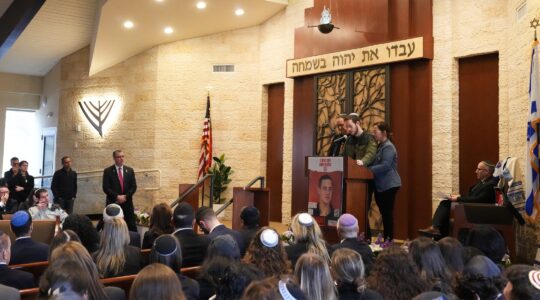A Presbyterian church statement on anti-Jewish bias and the Israeli-Palestinian conflict has inflamed many Jewish groups.
“Vigilance against Anti-Jewish Bias In the Pursuit of Israeli-Palestinian Peace,” a statement released on the eve of the Presbyterian Church’s biennial General Assembly, attempts to balance the need to combat anti-Jewish sentiment while continuing the church’s advocacy on Israeli-Palestinian issues.
It replaces an earlier statement, entitled simply “Vigilance against Anti-Jewish Ideas and Bias,” that Jewish leaders had welcomed.
More than a dozen Jewish groups – including the Jewish Council for Public Affairs, the American Jewish Committee, the Anti-Defamation League, B’nai B’rith International, and the top bodies of the Conservative and Reform movements – issued a statement Friday slamming the new document and rescinding their earlier expressions of support.
“The revised statement is infused with the very bias that the original statement condemned,” the groups’ joint statement said. “We are disappointed that after taking steps toward better relations, the church has rescinded many of the positive statements it made about rooting out anti-Jewish invective. It is even more disturbing that this occurs after Jewish groups had warmly welcomed the original statement, and only days before the church’s upcoming biennial.”
Separately, the leaders of the Reform, Conservative and Reconstructionist synagogue associations wrote to the clerk of the Presbyterian Church, Rev. Cliff Kirkpatrick, saying the statement “marks a new low-point in Presbyterian-Jewish relations.”
But at least one Jewish group, Jewish Voice for Peace, took a different tack, endorsing the church’s effort “to remain vigilant against anti-Semitism while wrestling with the moral implications of investing in companies that profit from the Israeli occupation of the West Bank, East Jerusalem, and the Gaza Strip.”
Middle East concerns are expected to be a top issue when the church’s biennial gathering opens June 21 in San Jose, Calif.
JTA has documented Jewish history in real-time for over a century. Keep our journalism strong by joining us in supporting independent, award-winning reporting.





